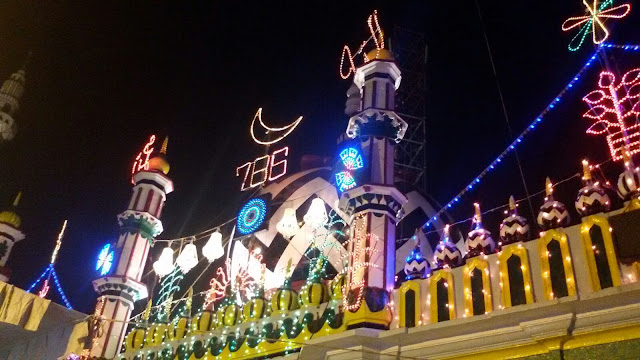FAQs on Marriage, Fate, and Free Will in Islam
Does Allah decide your marriage, or do you have a choice? Explore the Islamic perspective on fate, free will, and the right way to choose a spouse.
Question asked by: Hafiz Naeem from Raghubir Nagar, Delhi
Answered by: Mufti Muhammad Shahid Barakati
“If Allah decides our pairs, then are runaway marriages also His will?”
This is a common question, especially in today's time when interfaith marriages and love marriages are becoming more frequent. Many people believe that marriages are written by Allah, so does that mean if a Muslim girl runs away with a non-Muslim, it was also Allah’s decision?
The answer to this is yes and no – let’s break it down in simple terms.
1️⃣ Does Allah decide marriages?
Yes, everything happens by the will of Allah, but there’s a difference between fate (Qadr) and free will (Ikhtiyar).
Allah has created two types of decisions:
1️⃣ Qaza-e-Mubram (Final Fate): Some things are fixed and cannot change, like our date of birth, death, and natural events.
2️⃣ Qaza-e-Muallak (Conditional Fate): Some things depend on our choices, like our actions, efforts, and decisions – marriage is one of them.
💡 Example: If a person eats unhealthy food and gets sick, can they say, “It was Allah’s will that I got sick”? No! Because they had the choice to eat healthy but chose otherwise. Similarly, who we marry is our choice, but Islam has given clear guidelines on whom to marry and whom to avoid.
2️⃣ Is running away for love also Allah’s will?
No, Islam does not support this. Allah has given humans free will to make decisions, but with responsibility. Just because something happens does not mean Allah approves of it.
📖 Qur'an Reference:
"And do not marry polytheistic women until they believe (in Islam). And a believing slave woman is better than a polytheistic woman, even if she pleases you. And do not marry polytheistic men until they believe. A believing slave is better than a polytheist, even if he pleases you. They invite you to the Fire, while Allah invites you to Paradise and forgiveness by His will."
📚 (Surah Al-Baqarah 2:221)
This ayah clearly tells us that a Muslim should not marry a polytheist (idol worshipper), even if they find them attractive or good-hearted.
💡 Example: If a father tells his son not to touch fire, but the son still touches it and gets burned – can he blame the father? No! Because he was warned. Similarly, Islam has warned Muslims not to enter such marriages, as they can lead to loss of faith.
3️⃣ What happens if a Muslim girl or boy marries a non-Muslim?
Islam does not allow a Muslim woman to marry a non-Muslim man. If she does, the marriage is not valid in Islam.
📖 Qur'an Reference:
"Bad women are for bad men, and bad men are for bad women. Good women are for good men, and good men are for good women."
📚 (Surah An-Nur 24:26)
🔹 If a Muslim girl runs away and marries a non-Muslim – she is making a decision based on desire, not faith. Islam warns against such choices because they often lead to loss of faith, broken families, and regret later in life.
🔹 If a Muslim boy marries a non-Muslim girl – in some cases, Islam allows marriage with Christian or Jewish women only if they truly follow their religion and are modest. But even this is discouraged, as it can cause faith-related conflicts in the family.
4️⃣ Is everything written, or can we change our fate?
✅ Marriage is written, but we also have a choice.
✅ Our choices determine the outcome of our life.
✅ Dua, good deeds, and effort can change fate.
📖 Hadith:
"Nothing changes fate except Dua."
📚 (Sunan Ibn Majah, 90)
💡 Example: If a student does not study and fails, can they say, “It was written that I would fail”? No! They had the choice to work hard and change their result. Similarly, we have the choice to follow Islam’s guidance on marriage and relationships.
5️⃣ What is the Islamic way to find a life partner?
Instead of running away for love, Islam gives a respectful way to choose a life partner:
✔ Make dua for a good spouse.
✔ Look for piety and good character first, not just looks or money.
✔ Involve parents and elders for guidance.
✔ Do Istikhara (prayer for guidance).
✔ Follow the Islamic Nikah process, which is simple and full of Barakah.
📖 Hadith:
"A woman is married for four reasons: her wealth, her lineage, her beauty, and her religion. Choose the one with religion, and you will be successful."
📚 (Sahih Bukhari, 5090; Sahih Muslim, 1466)
💡 Example: Just like we don’t buy a car just because it looks good, but also check its engine, performance, and durability – choosing a spouse should also be based on long-term qualities like faith, character, and values.
6️⃣ What if someone has already made a mistake? Can they return?
Yes! Islam always gives a chance to return to the right path. If someone has already done something against Islamic teachings:
✔ They should sincerely repent (Tawbah).
✔ Make a strong intention to follow Islamic guidance.
✔ Seek help from scholars and family to make things right.
✔ If married outside Islam, seek proper advice from a scholar on how to correct the situation.
📖 Hadith:
"The one who repents from sin is like the one who has never sinned."
📚 (Sunan Ibn Majah, 4250)
Allah has given us free will, but with responsibility. Marriage should be based on faith, values, and compatibility, not just emotions. Running away for love is not Allah’s plan – it is a human decision that comes with consequences. May Allah guide us all towards the right path.
📢 Share this with others to spread Islamic awareness!
🔖 Hashtags for SEO:
#IslamicMarriage #MuslimMatrimony #LoveAndIslam #NikahGuidance #IslamicFate #QadrAndFreeWill














































